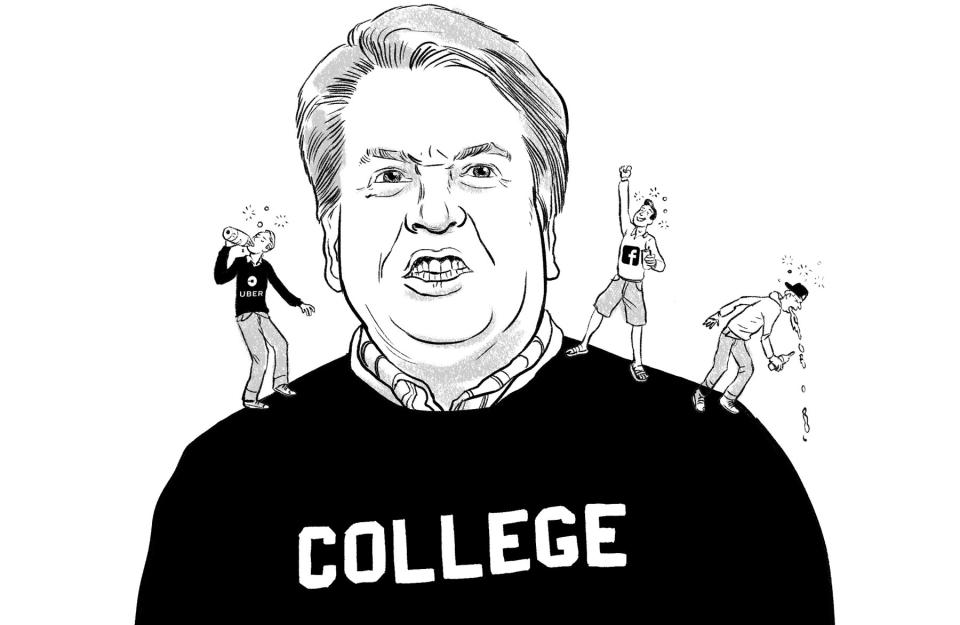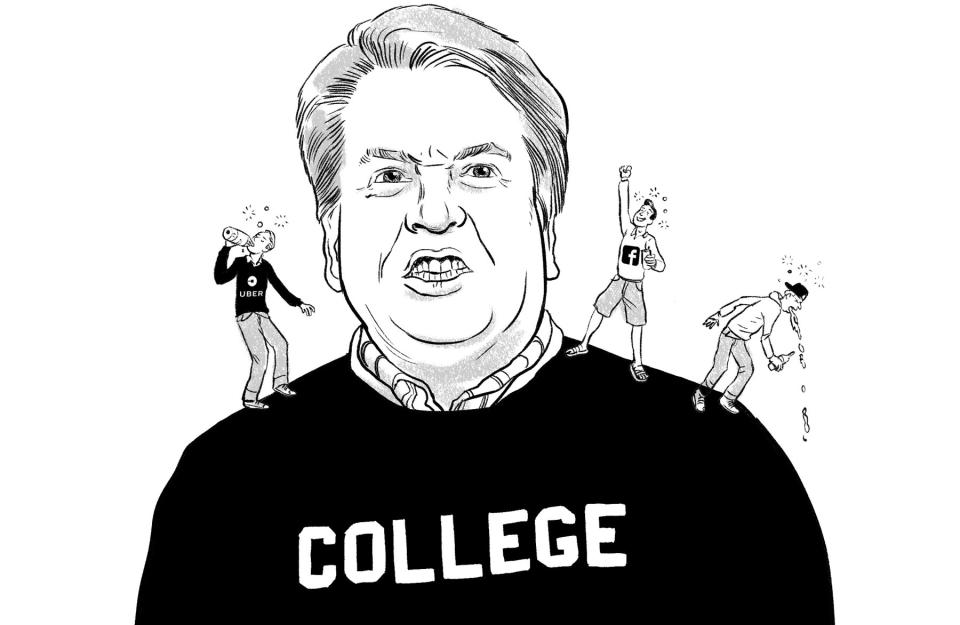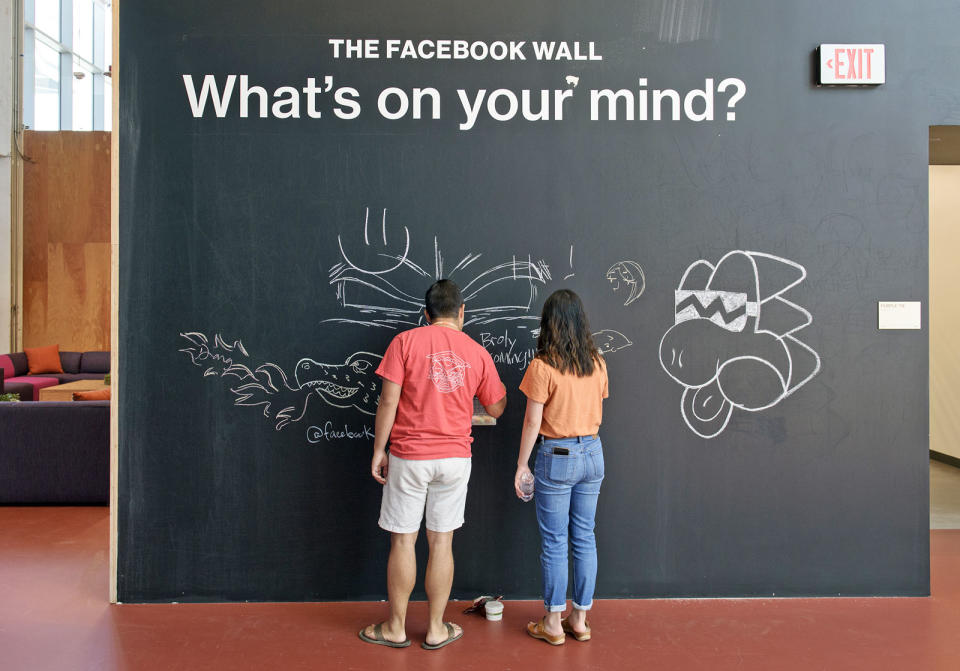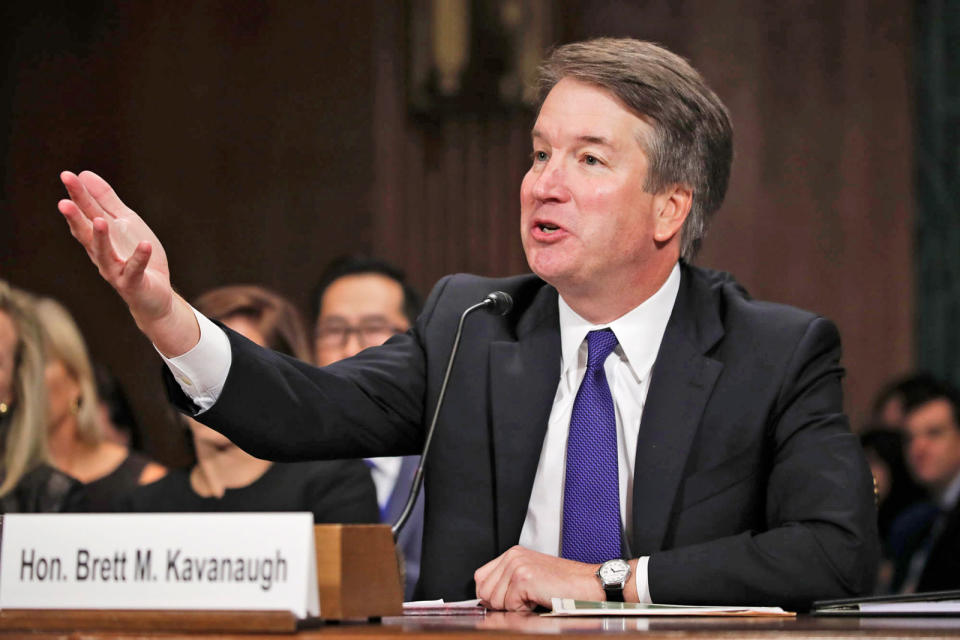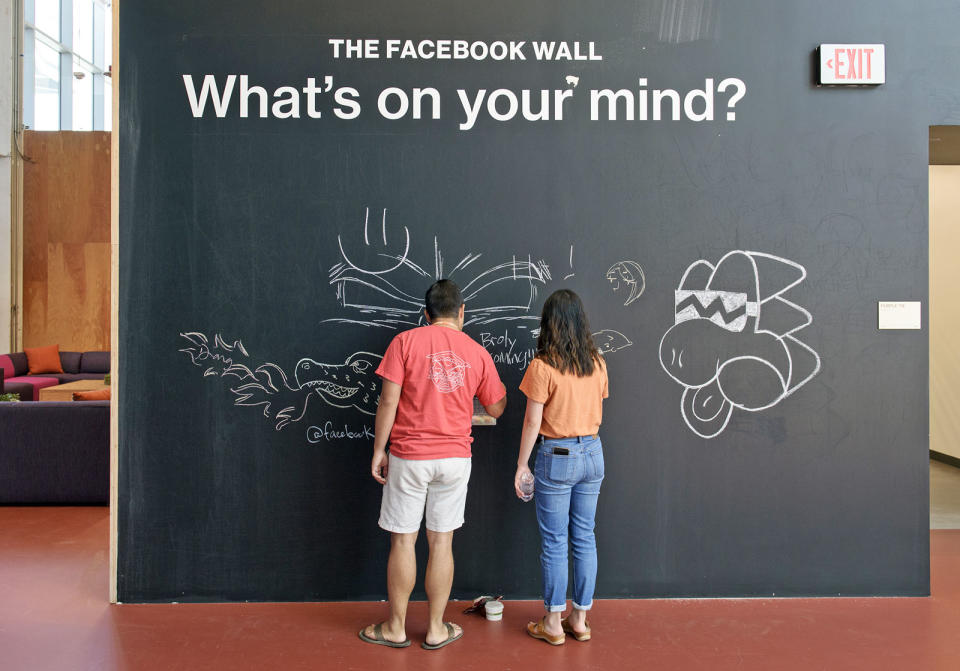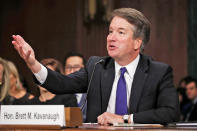Silicon Valley’s Brett Kavanaugh problem
When a Facebook bro shows up to support Kavanaugh, we have questions.
As we steel ourselves to careen numbly toward whatever new horrors lay in store with Trump, his Supreme Court pick Brett Kavanaugh, and the conservative politicians willing to help them, it's impossible not to contemplate how deep and depraved the culture of silence actually goes here.
USA Today wrote: "When Kavanaugh gave a speech in 2015 at Catholic University's Columbus School of Law and stated, 'What happens at Georgetown Prep stays at Georgetown Prep. That's been a good thing for all of us, I think,' he summed up the culture perfectly (...) It was their job to protect each other from their misdeeds no matter how big or alcohol-fueled. The boys kept each other's secrets."
It echoes what we've learned about companies like Uber, with its firing of over 20 employees for sexual harassment, its August $1.9m payout to 56 victims of sexual harassment, as well as 483 people paid out for additional claims.
Uber is just one among many in Silicon Valley with bro-forward, "brilliant jerk" company cultures that keep men on top and bad behavior secret, 80% of which have forced arbitration clauses and NDAs in employee contracts.
Forced arbitration is exactly what allowed serial offenders -- and forced arbitration's essential component, "Kavanaugh culture" -- to flourish at Uber. It highlights what we don't know about circles of protection and enforced silence at the companies shaping our very lives. Male-dominated companies with a culture of fairly rampant sexual predation from the top-down, should worry us.
The care and feeding of "Kavanaugh culture"

The notion of "Kavanaugh culture" casts a chilling net of questions and dread over the practice of Silicon Valley companies, like Facebook, that force arbitration clauses on their employees.
If you're unfamiliar, arbitration is a method to resolve legal disputes that bypasses the court system in private, and in which, evidence and proceedings are kept secret by requirement. "For example," wrote The Cut, "if three women were groped by their shared boss at work, and they all signed a mandatory arbitration clause — which frequently appear in work contracts, sometimes not even to the employee's knowledge — then they can't collectively sue him. Instead, the women have have to individually settle the issue in front of a third-party 'arbiter.'"
As recently as March this year, mandatory arbitration agreements for sexual harassment claims made by workers is something opposed by Attorneys general in all 50 states. New York, Washington, and Maryland are the only three states that ban mandatory arbitration of sexual harassment claims.
Imagine if you took the decades of lies, denial, and cover-ups you're seeing with Kavanaugh and his calculating cadre, and institutionalized it within a company that has an unimaginable amount of money, power, and influence. Arbitration, after all, was what was expected to keep Stormy Daniels and Susan Fowler silent. The Cut further explained:
Workers who sign contracts with arbitration clauses cannot act together to challenge sexual harassment in the workplace — instead, they're forced to fight alone. Also, arbitration clauses are often paired with non-disclosure agreements, which prevents survivors from raising public support for their cases.
Facebook denies use of "secret courts"

The practice is what prompted Huffington Post to attempt an investigation into Facebook's "Use Of Secret Courts To Handle Sexual Harassment Cases" — to little avail, of course. The company both defended its use of forced arbitration, and hastily told the outlet (after publication) that "Facebook does not use 'secret courts' to handle sexual harassment cases as alleged by HuffPost. That claim is false and misleading. We have never had an employee file a sexual harassment arbitration."
Amazing, if true. Gizmodo asked Apple, Google, Twitter, Facebook, Amazon, Tesla, SpaceX, Verizon, Uber, and Lyft "several times over the course of a few months for comment on whether they have ever required any employees to sign forced-arbitration agreements for sexual harassment claims."
"Of the ten companies, few provided a comment," they reported. Facebook confirmed their use of the practice, Amazon and Verizon said they didn't, and the rest of the companies skipped out on responding. (Lyft stopped arbitration for sexual assault cases in May.) The Guardian last year reported sexual harassment, misconduct, and worse on a "breathtaking" scale, citing instances at companies large and small, including Twitter, Apple, Oracle, Google and Tesla. Facebook was absent from the lineup.
Microsoft, for its part, eliminated forced arbitration agreements to end workplace secrecy in sexual harassment claims in 2017 -- yet currently faces a lawsuit alleging failure to "redress 238 internal complaints, including harassment, discrimination and rape."
It's essential to take into account that the reactions of conservative figures and their supporters to Dr. Ford's testimony echoed (in very specific ways) responses to Susan Fowler's description of widespread, repeated sex-coercion by men at Uber. Forums debating Fowler's account demanded more evidence, engaged in victim-blaming, discussed at length the discrimination against men and the harm of women making false accusations, and more.
Since then, Fowler has made it her mission to end private arbitration. "I know that if we got rid of forced arbitration and non-disparagement agreements, I know that this would not happen to future Susans," Fowler told Recode.
As I noted, the companies maintaining their legal-loophole "Kavanaugh culture" shape our daily lives, the information we see and consume, and the expression of sexuality and consent in the public square through their policies, attitudes, and political maneuvering. Which brings us to the Supreme Court, where Trump and company endeavor to flaunt a nation's consent contract with its government and forcibly insert a conservative jurist who will be deciding cases as soon as October.
"The court has already agreed to hear 38 cases for its upcoming term," New Republic notes. "So far, none of them are marquee cases on abortion, gay rights, gun control, or other issues that frequently capture headlines and public attention."
Some of the upcoming cases do involve copyright, the death penalty, rights of Native Americans, and the potentially "major cases on abortion, LGBT rights, and other politically polarized issues." We can absolutely expect anti-LGBT cases to come forward, emboldened by a court stacked in the favor of bigots — if not just in favor of dismissing credible sexual assault claims by women — targeting the freedom to marry, transgender rights, and other pet projects of the far-right.
The "hard right" Brett Kavanaugh says that Dr. Ford's story is not true, that none of the women coming forward about him are telling the truth. Trump labels the #MeToo movement as a "con" and "very dangerous" for powerful men. Companies like Facebook (a force behind FOSTA and supporter of "faith-based healthcare" proponent State Policy Network) say that no employees have ever filed sexual harassment arbitration claims.
Interesting to see Joel Kaplan, Facebook's chief lobbyist, in the hearing room supporting his friend Brett Kavanaugh
— Tom Braithwaite (@TBraithwaite) September 27, 2018
All of these environments are ones of loyalty and secrecy, lies and denials, of wielding power over the powerless for as long as they can get away with it. And none of their systems are built for (or interested in) justice or fairness for the "lower" classes.
Or especially, the credibility of women.

